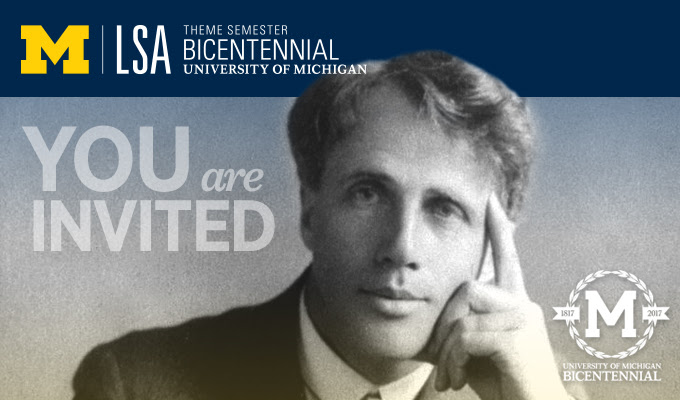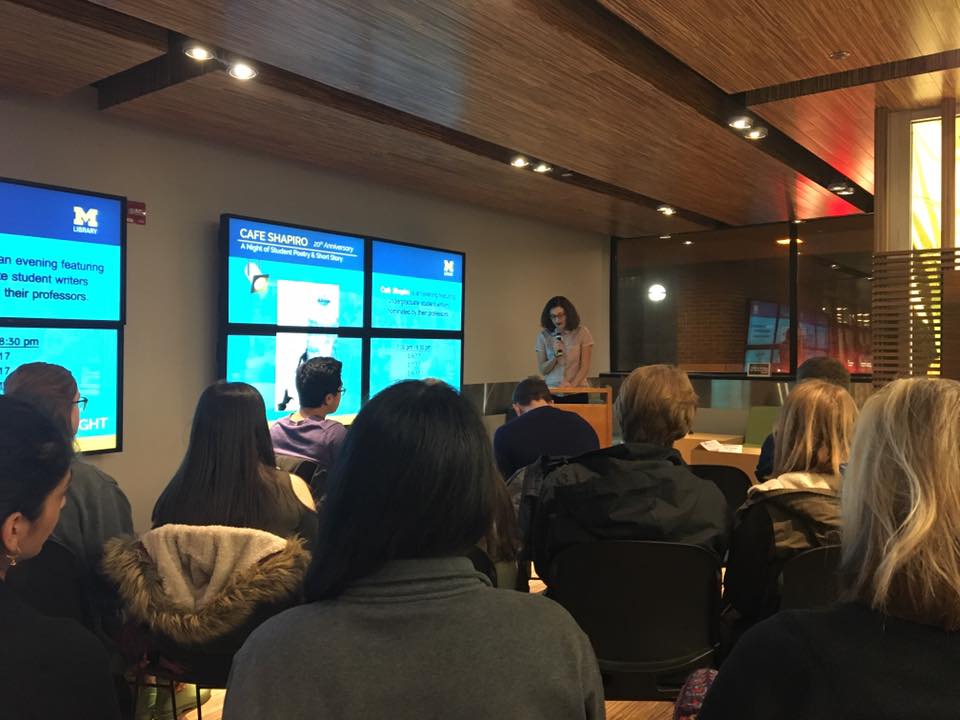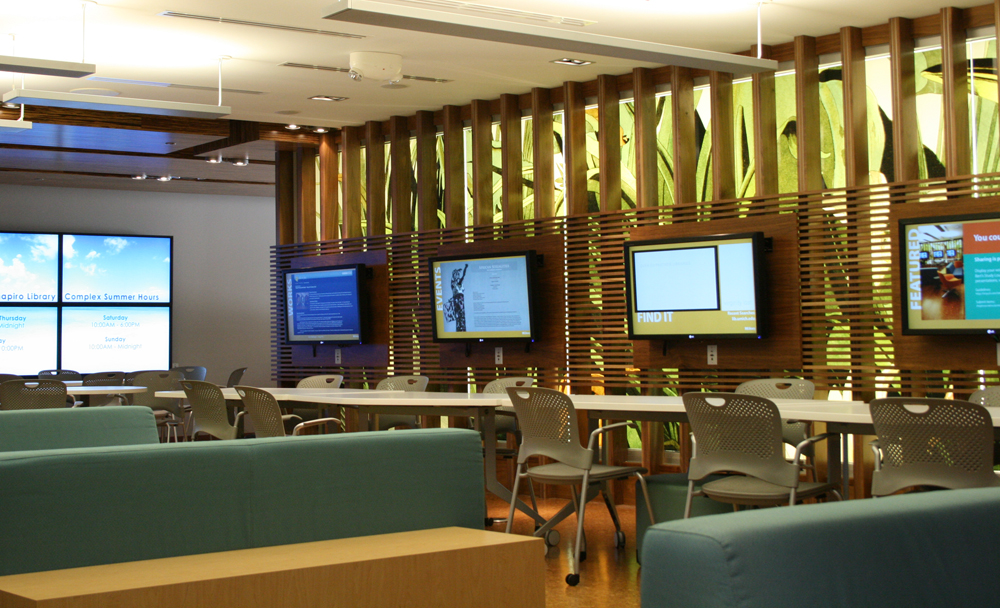On Friday, April 7th, natural light filled the Rogel Ballroom as poetry enthusiasts gathered to learn about the UM poetry scene from the 20th century to now. Because I only attended two out of the three panels of the symposium, I will only be reviewing those two: “The Middle Years” and “The Art Continues: Contemporary Michigan Poets.” This symposium intended to highlight the history of poets at the University of Michigan (not just poets from the state) and where that history has brought us.
The Middle Years panel consisted of poet and current professor Laurence Goldstein, former professor John Knott, and the illustrious multi-genre writer and funeral home director Thomas Lynch. Current professor Cody Walker introduced the panel. Goldstein began the panel by discussing the “middle” history of poets at UM from Theodore Roethke to Donald Hall and Jane Kenyon. He opened with a poem by Anne Stevenson titled “Ann Arbor,” fittingly. He read mostly from his notes but clearly loves this subject and showed excitement about previous poets from here. He mused on Roethke never turning his coursework in until the very end of the semester and on Robert Hayden’s “proletarian poetry.” A notable closing quote from his portion: “You don’t have to be an English major to write great poetry.”
Next, Knott (who filled in for current poet XJ Kennedy, who originally was going to speak at the event) talked about the poetry of Roethke and Hayden as well as beginning the segue into today’s poetry scene. He read Roethke’s “My Papa’s Waltz” and Hayden’s “Those Winter Sundays,” both hallmarked poems about their respective fathers from their childhood perspectives. He discussed them in the context in which he taught these poems: thinking about their tones and complexity of the emotions and relationships. Before Lynch stood to talk, Knott finished his discussion by honoring the Helen Zell MFA program and comparing the old poetry scene to today’s, which is now lively and full of readings. He was also excited to be there and talk about our historical poets.
Lynch’s section was mostly him telling stories relevant to the middle years of UM poetry – he started by telling a recent one about his experience at the Russian Bathhouse with other writers. While he didn’t necessarily discuss specific MI poets, his stories were highly entertaining. He also noted (several times) the importance of buying books of living poets, gesturing to the Literati vendor in the back of the ballroom. His section and this panel ended with him reading his “unfinished and failing” poem, “Heaney-esque.”
The third panel was incredible: poets Jamaal May (who filled in for Tarfia Faizullah), Airea D. Matthews (filling in for Vievee Francis), and Laura Kasischke each read from their own works. This panel was a reading, so it gave a different energy than the previous panel and was a great end to a poet-filled day. Keith Taylor, poet and current director of the Creative Writing subconcentration, introduced this panel and told stories about each of the reading panelists.
May began with some politically charged pieces and kept reading from his latest collection Big Book of Exit Strategies including pieces such as “I Have this Way of Being,” “There are Birds Here” (his famous Detroit poem, which he had memorized), “As the Saying Goes,” and “The Gun Joke.” He read a few pieces from his other collection Hum before closing with saying “I’ll never stop marvelling at the fact that people sit still while they listen to what’s in my head” and reading his poem “Now for My Last Trick.”
Matthews began her section by discussing the return to representation and pattern-making. She read from her very new and very beautiful collection, Simulacra including: “Epigraph,” “On Meeting Want for the First Time,” “From the Pocket of His Lip,” “Rebel Opera,” “Letters to My Would Be on Dolls and Repeating” (probably my favorite), “Narcissus Tweets,” and “If My Late Grandmother Were Gertrude Stein.” Her poetry was poignant and emotion/language-driven, with an amazing focus on images. Some pieces had conversation threaded throughout. She explained that the last one began as a facebook status and informed the crowd that poets can start anywhere. She’s right.
Kasischke started the last reading by bringing up Frank O’Hara, a UM poet from the middle years, and how she didn’t hear anyone else discuss his work. She read his poem “Animals” before going into some of her funny and energetic, older poems. “You can’t swing a baguette in Ann Arbor without hitting a great poet,” she mused. Because she is a Michigan native and went to UM for several years, she said “When I die, they’ll have to mix my ashes with the cement and put it in a parking structure.” As for the poems she read: “Woman Kills Sweetheart with Bowling Ball” (inspired by a newspaper article by the same title), “Praying Mantis in My Husband’s Salad,” “Something You Should Know,” “What I Learned in 9th Grade,” “Two Men & A Truck,” “Time Machine,” and “Memory.”
Each reading was incredible and I wouldn’t be surprised if the poets in the audience went home directly afterwards to write poetry inspired by what they had heard that afternoon. While the Middle Years panel taught us about older poets in more of a mini-lecture form, the third panel’s conglomerate of contemporary poetry was a great ending to the afternoon. If you’d like to learn more about poets at Michigan, consider taking Cody Walker’s English 340 course on the topic this fall semester.







